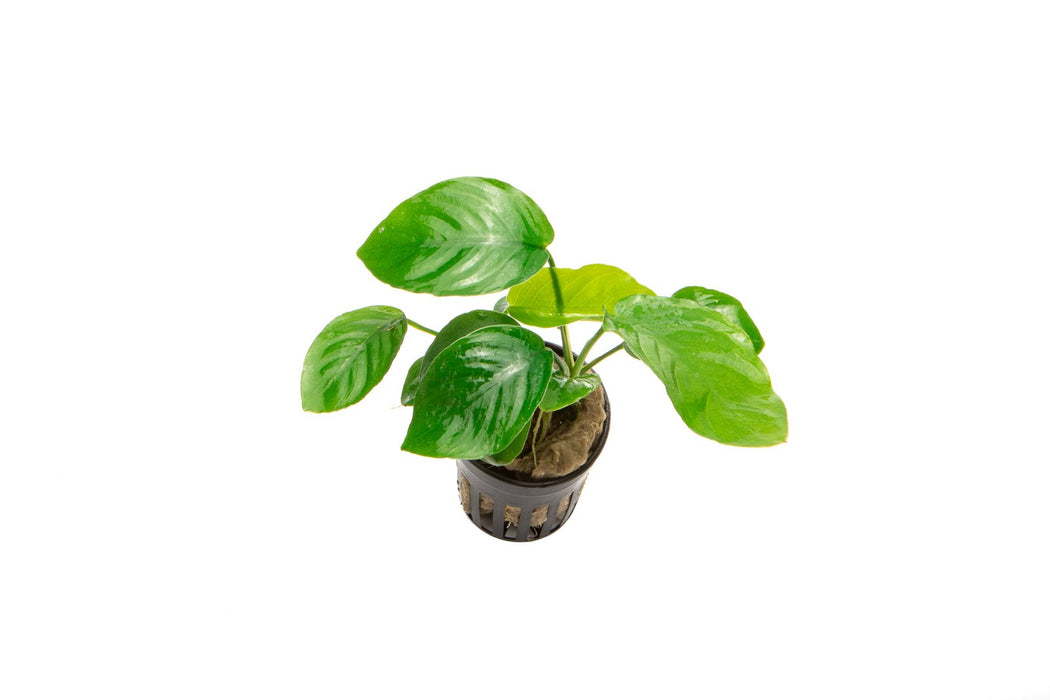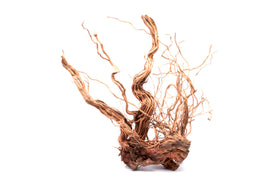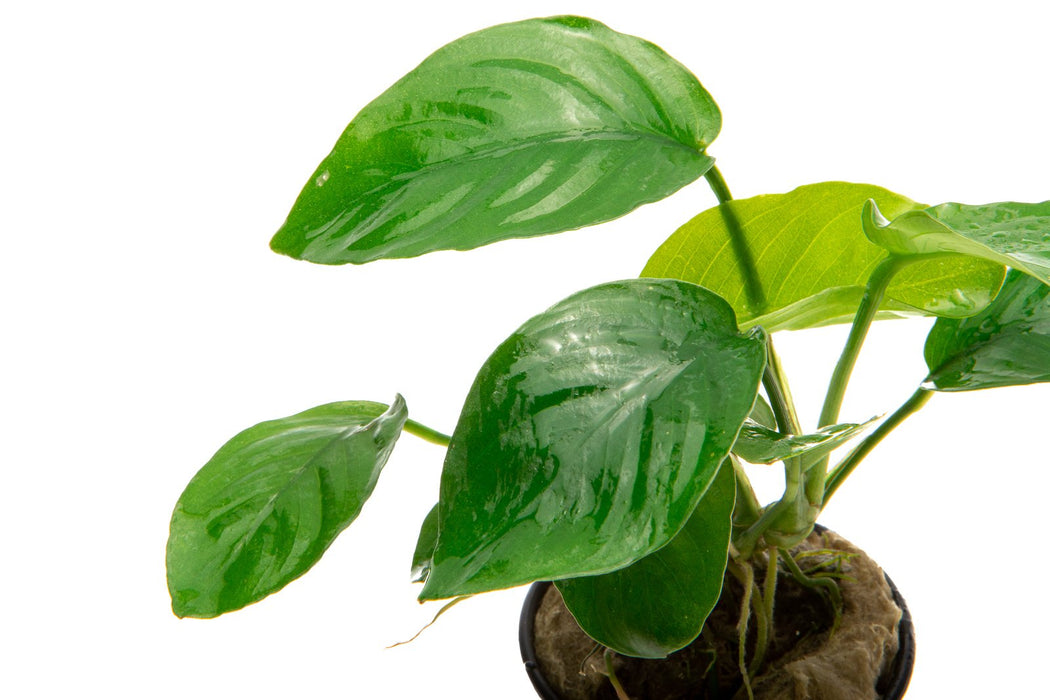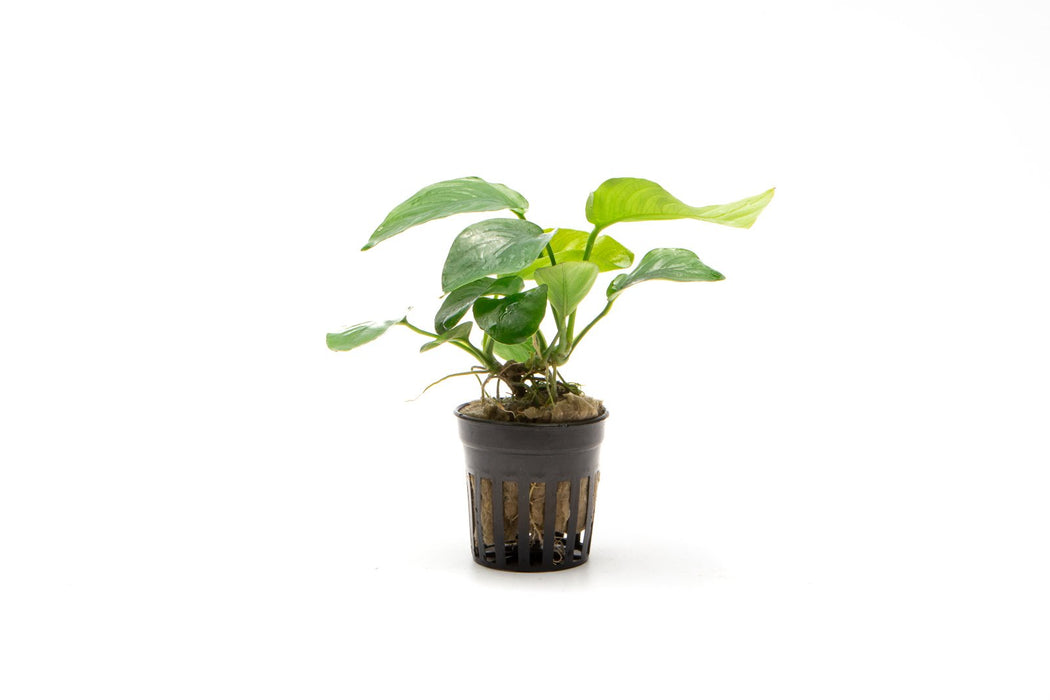
Anubias Barteri Butterfly
Common Name: Anubias Butterfly
Anubias butterfly is highly popular among aquarists for its large, dark green, waxy leaves that are very hardy and resilient. This plant is easy to care for, making it an ideal plant for a beginner. Anubias butterfly can grow in a variety of conditions including low-light and low-nutrient water. Depending on its size it can be good as a fore-, mid-, or even background accent. Typically the Anubias butterfly’s rhizomes will attach to a rock, piece of driftwood, or other tank decoration, but they can also float or be planted. It is somewhat unusual to plant Anubias butterfly, but if you do make sure that the rhizomes are not buried to avoid rot. This plant is popular for tanks without substrate, and appreciates good water flow. They can be grown either submerged or emersed. Anubias work very well with a variety of tank mates, and can survive even the most active and aggressive fish species.
Anubias butterfly can survive without CO2 injection, but it will grow faster and larger with it. These plants prefer moderate lighting; high lighting can cause the leaves to yellow, and encourage harmful algae growth. Anubias butterfly rarely bloom, but can produce conical flowers in excellent conditions. Anubias butterfly propagates through its rhizome system. If the plant is healthy it should produce side shoots from its rhizome, which you can remove and tie down or let float.
Notes:
- Anubias are strong plants that can thrive in a variety of environments.
- These epiphytes can be planted above the substrate or attached to hardscape.
- Burying the rhizome, will cause the plant to melt and die.
- Do not make drastic changes to the aquarium. Unstable parameters will result in melt and rotting of the aquarium plant.
- Please be sure to remove this plant from its pot. For instructions on how to properly prep aquarium plants, click here.
- CO2 injection and quality aquarium soil will yield better growth.
- Please research appropriately to ensure your plant thrives.
Family Name: Araceae
Origin: West Africa
Height: up to 16”
pH: 6.5-7.5
Care: Easy
Light: Low to medium
Co2: Not necessary but recommended
Propagation: Rhizome division
Growth rate: Slow






